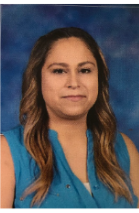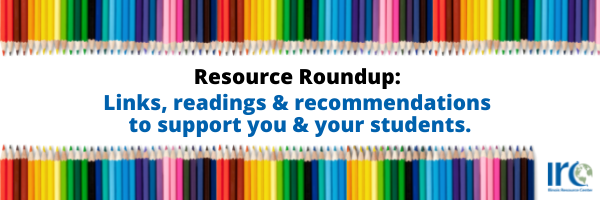 Over the past few months, the IRC has asked members of our community to nominate Illinois teachers working with multicultural, multilingual students who are going above and beyond, and now, we’re celebrating them and highlighting their work. Keep an eye out for these features in the coming months – and if you’d like to nominate someone, email leanet@cntrmail.org. Next up is Sonia Enriquez, an educator at DeKalb School District 428.
Over the past few months, the IRC has asked members of our community to nominate Illinois teachers working with multicultural, multilingual students who are going above and beyond, and now, we’re celebrating them and highlighting their work. Keep an eye out for these features in the coming months – and if you’d like to nominate someone, email leanet@cntrmail.org. Next up is Sonia Enriquez, an educator at DeKalb School District 428.
Says Emily Weller, who nominated her: Sonia has had an incredible impact on students, families and teachers within our school district. She collaborates with teachers in each grade and works as an instructional coach to ensure that all students meeting their goals. She has been instrumental in helping build our Two Way Dual Language program and providing ongoing learning to families and staff. She is an excellent listener and a collaborative partner. She responds to students and family needs and treats each child like she would her own. Her attentiveness to details and willingness to complete all tasks in a timely manner speaks volumes to her work ethic. Sonia has deep knowledge about language learners and continues to follow research and best practices. She holds everyone she works with to a high standard and is exemplary in the way she leads!
In the 16 years Sonia Enriquez has been involved in her district, the Dual Language program has evolved significantly. When she first started, the program was an early exit program, then a one-way program, before finally going two-way seven years ago.
“It took a lot of advocacy and a lot of work to get there, a lot of professional development but also with our teachers to advocate for this program, not only for them but for the community to get the program approved,” she says. In practice, Enriquez helped organize a two-way dual language committee and a training program called The Perfect Match to help create a solid program using policies to support best practices for students and families.
“It’s been a long journey through all the PD we’ve received and advocacy to make sure that people know what the vision of the program is and how it looks within the school environment and also at home,” she says. “The program is evolving every year.”
When it comes to advocacy around the program, Enriquez says her approach is built on listening to all stakeholders—teachers, staff and students—and trying to problem solve. “That’s my approach—building people up and just trying to find their strengths and areas of growth and empowering them, to really support the program and the students and their families so the program keeps growing and evolving,” she says.
Enriquez advises educators who want to advocate for a two-way dual language program to first and foremost educate themselves on what that means, and to consider professional development to learn the ins and outs of the program, as well as what laws protect students and how they impact decision-making.
Her approach to engaging families to advocate for and support the program is similar. She says she thinks like a parent, focusing on what is best for the students and families. “Any time I speak to any of my colleagues, I always approach it from that lens – what do our students need, what do best practices say, and collaborate based on that,” she says. “I also try to educate families and help with understanding what the program entails and what the vision of the program is, showing them the research that this really does work and benefits your child.”
Connecting with and being able to convey the mission of the program, too, is essential—in DeKalb’s case, to promote bilingualism, cross-cultural awareness and competency in both worlds to foster well-rounded, empathetic students.
“When the program got approved, it solidified all the work we did before that,” she says. “Seeing the students interact with each other no matter what language you speak or background you come from, looking at it on the playground where all the kids are interacting and students are not segregated, it just solidifies the power of this program.”
Her advice for her peers is simple and succinct: “To keep fighting the fight. To keep going, and to keep advocating for our kids.”


